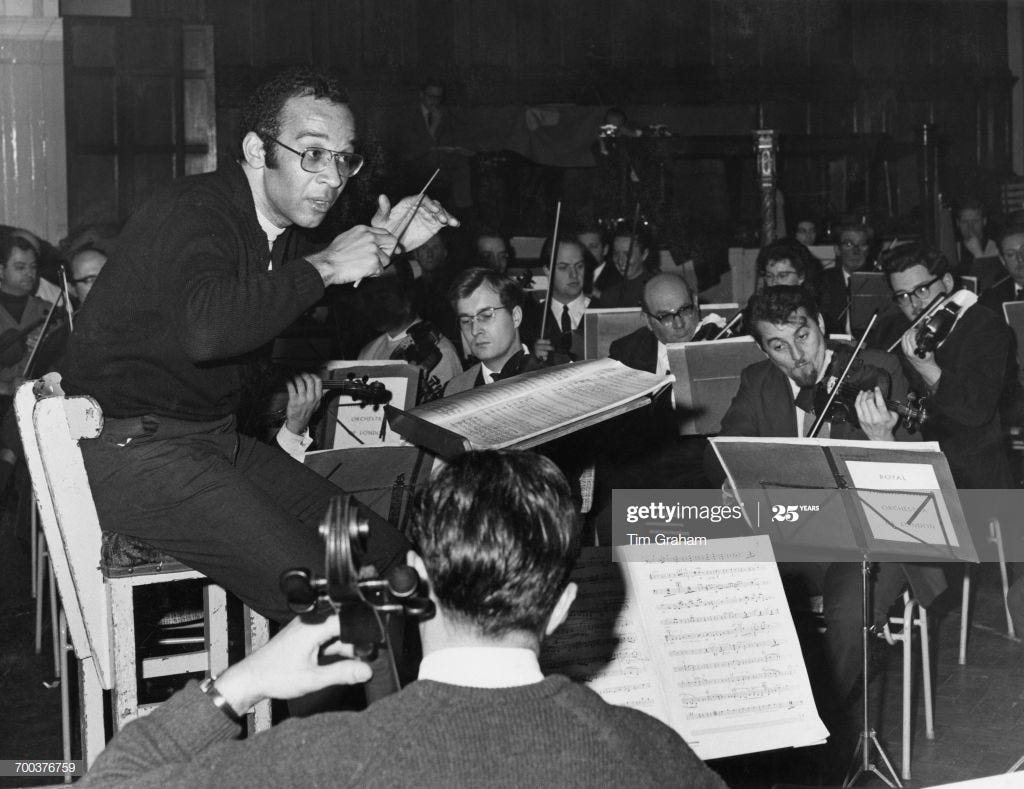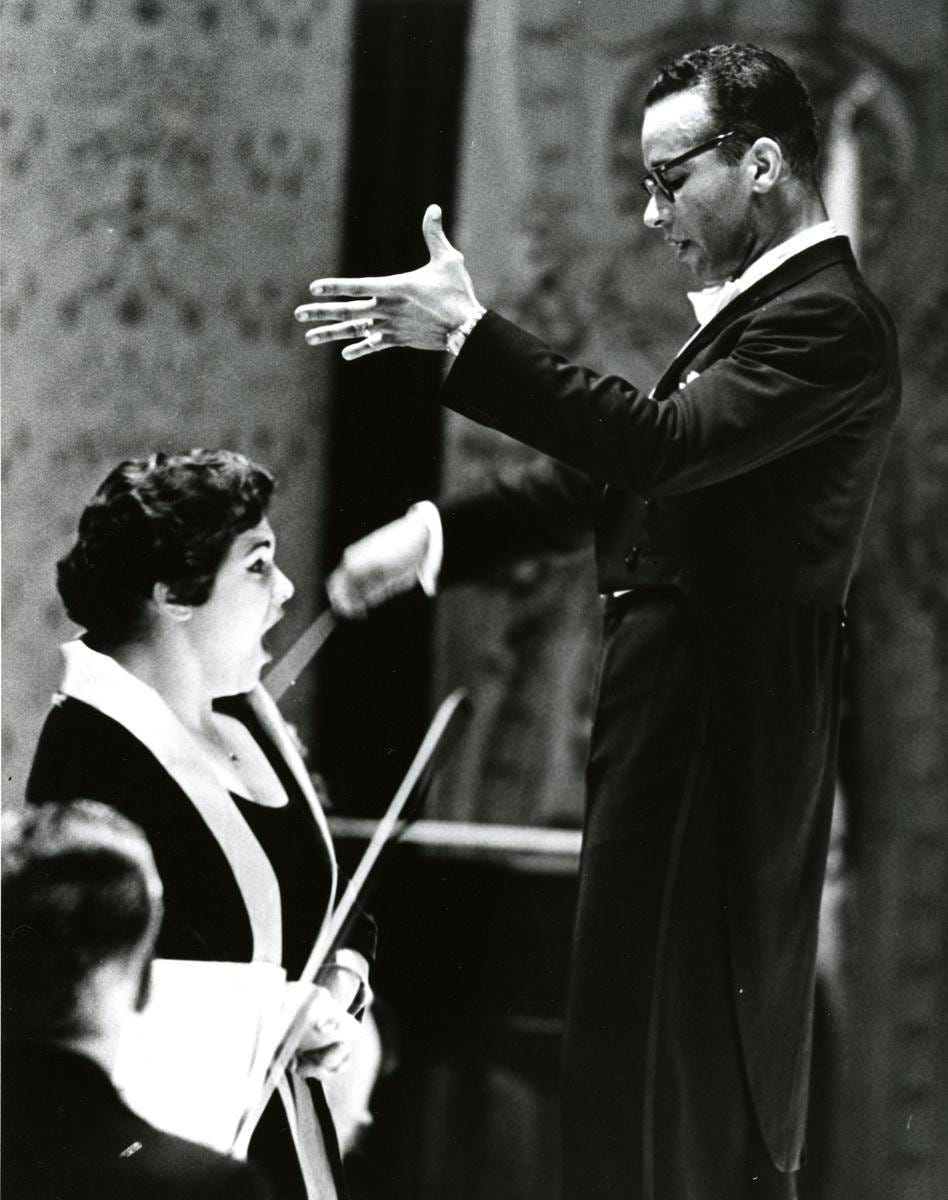
The conductor Henry Lewis was born in Los Angeles in October 16, 1932. He began his musical studies at the age of five with piano, clarinet and strings. In junior high school he began studying voice and the double bass, an instrument with which he immediately excelled, so much so that it got him a scholarship to attend University of Southern California. At the age of 16, Lewis was invited to join the Los Angeles Philharmonic as a double bassist and remained in the orchestra for six years.

In 1954, he was drafted into the U.S. Army, becoming the conductor of the Seventh Army Symphony Orchestra in Stuttgart, Germany. In 1961, Lewis received national attention when he was appointed assistant conductor to the Los Angeles Philharmonic by their music director, Zubin Mehta. During his first season, he stepped in to conduct for an ailing guest conductor for an evening of Verdi arias sung by Lewis’ wife, Marilyn Horne, receiving glowing reviews by the local press.

In 1968, Lewis became the first African American to lead a major symphony orchestra in the U.S. when he became the music director of the New Jersey Symphony Orchestra, a post he held until 1976. So many conductors are now heralded, including myself, for eschewing elitist behavior and traditions that have surrounded classical music and a symphony concert, but Lewis was doing all of it before any of us. Directly following the 1968 Newark riots, Lewis brought the orchestra directly to the neighborhoods that were mostly destroyed and performed in outdoor venues and local high school gymnasiums. He also broke down the socioeconomic barriers by offering $1 tickets to concerts in Newark’s Symphony Hall. He was also very informal and relaxed during the concert, encouraging the audience to clap between movements if they were so inclined. All of these initiatives are, sadly, still considered new and innovative.

In 1970, Lewis was the host of the educational television program The Symphony Sound with the Royal Philharmonic Orchestra. Geared for elementary and high school students, it’s goal was to introduce the unique sounds and instruments of the symphony orchestra. It’s an excellent program.
Lewis was also the first African American to conduct the Metropolitan Opera in 1972, conducting Puccini’s La bohème. For the next five years, he would conduct many operas at this esteemed opera house. In 1976, Lewis retired from the New Jersey Symphony Orchestra, continuing to guest conduct the world’s leading orchestras and opera houses. From 1989–1991, Lewis was the music director of the Netherlands Radio Symphony. Lewis passed away in New York City in 1996.
Henry Lewis left a discography that was diverse and eclectic, but always of a very high quality. Many of them were recorded with his wife, Marilyn Horne, but there are also many other excellent recordings of operatic and symphonic repertoire to listen to and discover!
